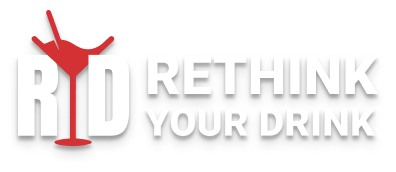Experts increasingly emphasize that the best prevention of the health risks associated with alcohol is complete abstinence. Health professionals and professionals have a key role in the prevention of excessive alcohol consumption through education, screening, intervention and treatment support.
Preventive advice during medical examinations: Experts should regularly discuss with patients the health risks associated with alcohol consumption, even during preventive examinations. It is particularly important to talk about alcohol with young people, pregnant women and at-risk groups such as people with chronic diseases, including screening for addiction and identifying at-risk individuals.
Providing information about the physical and mental consequences of alcohol: Health professionals can provide patients with information about the physical and psychological consequences of excessive alcohol consumption. Education about the fact that even moderate alcohol consumption is not completely risk-free should not be neglected.
Short intervention and motivational interview: Health professionals can use short motivational interviews (so-called 5A: ask, advise, assess, assist, arrange), the aim of which is to motivate patients to limit or stop alcohol consumption. A short intervention can be effective in an outpatient setting and often only takes a few minutes, over the phone or online.
Public campaigns and educational activities for the public and other health professionals: Health professionals can work with community organizations and the government to organize public education campaigns, lectures or workshops aimed at raising awareness about the dangers of alcohol. Health professionals need specific education on how to properly communicate with patients at risk of alcoholism, including interviewing techniques and identifying problem behaviors.
Support of the family and loved ones of the person using alcohol: Professionals can also help by working with families and loved ones of addicts to know how to respond and help their loved ones seek and stay in treatment.
Treatment and rehabilitation support: Health professionals should be able to recommend professional help and treatment for alcohol addiction to patients, either on an outpatient basis or in the form of hospitalization. They should be aware of available services and programs that provide support, such as Alcoholics Anonymous groups or rehabilitation centers.
What can the environment do for a person struggling with alcoholism?
Learn about alcohol addiction: Learn about the symptoms and consequences of alcoholism, as well as treatment options. This will help you better understand the situation and communicate with the person about his problems without criticizing him. Learn to recognize red flags: frequent excessive drinking, deterioration of relationships, neglect of responsibilities, physical health problems and refusal to consume alcohol despite negative consequences.
Create a supportive environment: Let the person know that you are ready to listen when they are ready to talk about their problem. Listen without judgment or criticism. Rather than judging or criticizing, show empathy and understanding, express concern for his health and overall well-being.
Start an open and sensitive conversation: Choose an appropriate time and place and talk to the person when they are sober, in a quiet environment free of distractions. You can start by expressing concern about his behavior by reflecting on what you perceive. For example: “I’ve noticed that you’ve been relying on alcohol a lot lately. I’m worried about you and your health.” Use specific negative effects of alcohol on life. Avoid blaming or blaming. Ask how the person feels and what they think about their drinking. Listen to what’s on his mind without interrupting.
Support the decision to seek professional help: Suggest getting help from a doctor, psychologist, addiction counselor, or support group. You can offer to help the person make an appointment or accompany them to their first consultation. You might suggest attending support groups for families of alcoholics.
Be patient and supportive: Changing habits can be a long and complicated process, it is important not to stop with our support. If a person starts drinking again after a period of abstinence, don’t give up. Encourage her to try the change again. While this may feel like a step back, remember that it doesn’t mean they or you have “failed.” It also doesn’t mean they won’t be able to quit again in the future.
Set your boundaries: Protect yourself. It is important that you know how to set boundaries and protect your own mental and emotional state. Addiction can be exhausting for those around you, so it’s okay to set limits on how far you’re willing to go to help. Do not try at all costs to control their behavior and decision to quit alcoholism. You can support him, but he has to make the final decision himself. If you feel that caring for someone with an addiction is too difficult for you, do not hesitate to seek professional help for yourself. If someone else’s drinking is putting you or someone you know at risk, talk to someone you trust. If you are in immediate danger, call 158/112.
Beware of codependency: Don’t support the addiction by excusing his behavior or making it easier for him to access alcohol (for example, by buying alcohol or ignoring the problem).
What treatment and support options are available for people who want to recover from alcohol addiction?
Treatment of alcoholism includes several phases and approaches that depend on the degree of addiction and the individual needs of the patient. In the acute phase, it is often necessary to avert immediate threats to an individual’s health. In the case of moderate consumption, we have the choice of an outpatient form, a day hospital or, in the case of a severe form of alcohol use, up to inpatient institutional treatment. In the stabilization phase of treatment, the patient consolidates his life situation, begins to solve interpersonal, social and work problems. It is also important to maintain abstinence, which is crucial for success. In the maintenance phase of treatment, the patient’s adaptation continues to improve, sessions with experts or a support group should continue.
Current treatment of alcohol addiction is based on two pillars: psychotherapy and pharmacotherapy.
Pharmacological treatment: Dreams of a miracle pill and abstinence without doing anything are just illusions. It is necessary to realize that we cannot remove the body’s internal affinity for alcohol with drugs, and therefore this type of treatment does not lead to a complete cure. In current pharmacotherapy, drugs that reduce the desire for alcohol (so-called anticraving drugs), drugs to alleviate withdrawal symptoms or drugs that create unpleasant reactions to its consumption (e.g. disulfiram, naltrexone, acamprosate) are at the forefront.
Psychotherapy of alcohol dependence: Cognitive behavioral therapy (but also other psychotherapeutic directions) offers a range of useful procedures, such as: social skills training (ability to refuse alcohol), problem solving training, relaxation techniques, emotion management training, relapse prevention. Family therapy and support groups can be another support.
Sometimes patients also rely on alternative forms of treatment, such as acupuncture, hypnosis, meditation, light therapy, homeopathy, aromatherapy, spirituality or prayers.
Resocialization and relapse prevention: After the end of the detoxification and psychotherapy phase, it is crucial to continue the therapy to prevent relapses. Continuing to meet with groups such as Alcoholics Anonymous, building positive habits, and dealing with interpersonal interactions is often essential to long-term recovery and sustained abstinence. To prevent relapse, it is important to learn to recognize and manage situations that may trigger a desire for alcohol.
In cooperation with MUDr. Michaela Kríková




